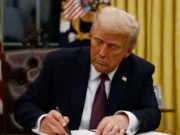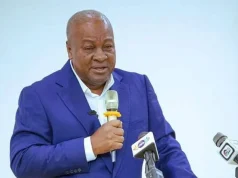Former Deputy Minister of Power under the Mahama administration, John Jinapor, has distanced himself from negotiations that led to the country’s purchase of a power plant in 2015.
According to him, he acted on the instructions of a Minister during the negotiation and cannot, therefore, be directly involved in any alleged bribery scandal.
He stressed that he appeared before an investigative body on the issue to state what he knew about the scandal.
The comments of the former Deputy Minister and also MP for Yapei/Kusawgu follows report from the Securities and Exchange Commission (SEC) of the United States that indicted some former Ghana government officials and MPs in the bribery scandal.
The report indicated that these officials were bribed with a total of $4.5million by intermediaries of a Turkish energy company, AKSA Energy, in a bid to land a power deal with the Ghana government during the country’s energy crises.
Mr. Jinapor, who spoke in an interview on Asempa FM’s Ekosii Sen, argued he worked with former Minister of Power, Dr Kwabena Donkor when the AKSA deal happened.
“He (Kwabena Donkor) did his best and left but never assigned me to the AKSA thing,” he stated.
Resigned Managing Director of the Tema Oil Refinery, Asante K. Berko, is alleged by the US SEC as using influence as a vice president in the natural resource group of Goldman Sachs’s investment banking division to push through the deal for the procurement of the power plant.
Court documents revealed that Berko arranged the payments of bribes for members of the Ghanaian government and some legislators under the erstwhile John Mahama administration in 2015-16.
The payment was said to have been done on behalf of the Turkish Energy Company, described in the court documents as a client of the subsidiary.
The former banker allegedly pushed the money through an intermediary company in Ghana which then paid the monies to MPs to approve the deal, and also to engineers.
Officials at the Energy Ministry were also said to have had their share of the bribe, the court papers allege.
Even though the court documents did not name any government official or the companies involved, there was a vivid description.
“From approximately 2015 through at least 2016 (the “relevant period”), while employed at the Subsidiary, Berko schemed to bribe various government officials in the Republic of Ghana (“Ghana”) so that a client of the Subsidiary, a Turkish Energy Company (the “Energy Company”), would win a contract (the “Power Purchase Agreement”) to build and operate an electrical power plant in Ghana and sell the power to the Ghanaian government (the “Power Plant Project” or “Project”),” the court noted.
It added that Berko arranged for the Energy Company to funnel between $3 million to $4.5 million to a Ghana-based company (the “Intermediary Company”) to bribe various government officials responsible for approving the Power Plant Project.
The Energy Company is said to have transferred at least $2.5 million of the planned $3 million to $4.5 million to the Intermediary Company, all or most of which was used to bribe government officials.
Mr Asante Berko has now resigned from TOR to fight the case and President Nana Akufo-Addo has accepted his resignation and wished him well.










































